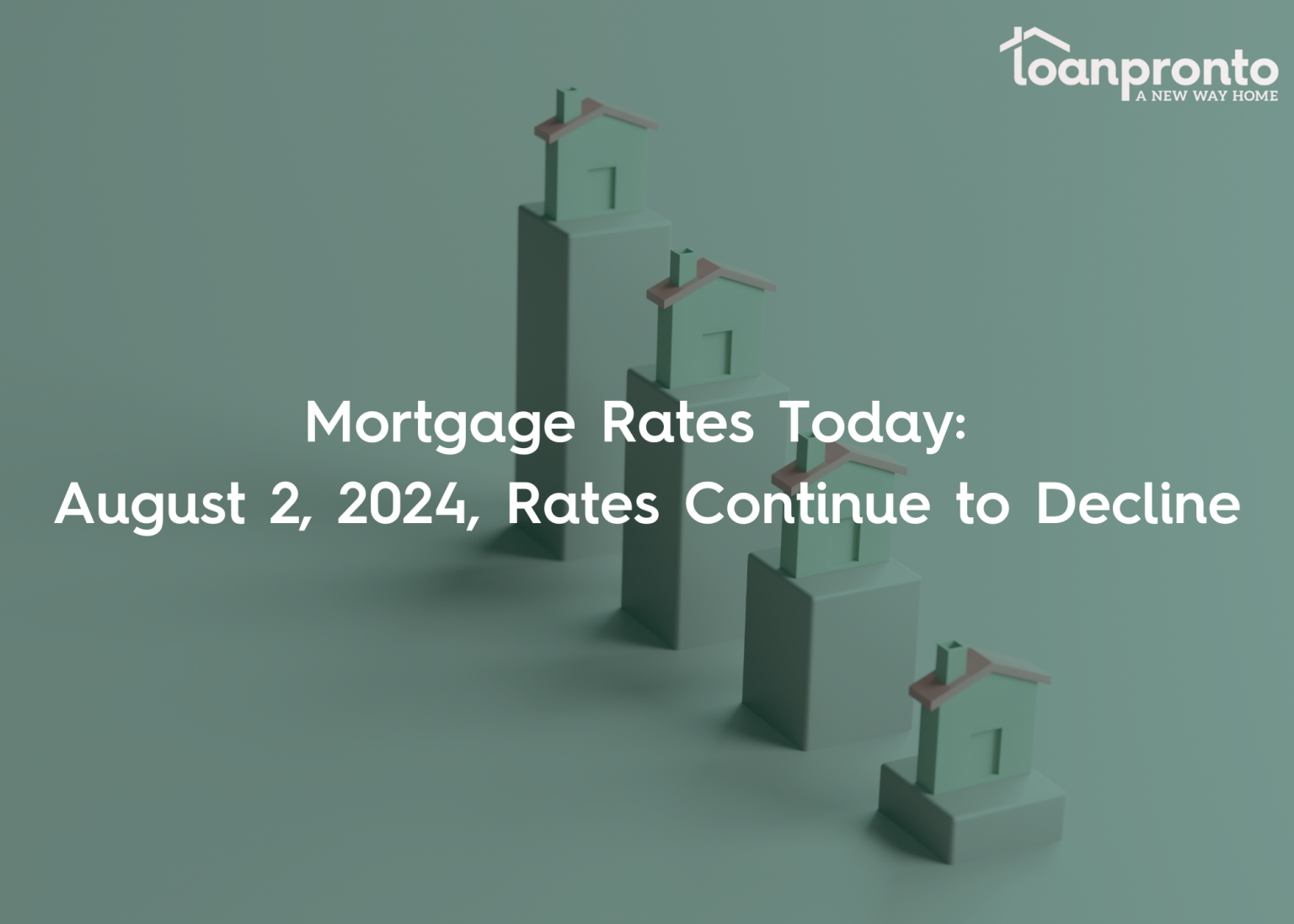This week, mortgage rates dipped due to disappointing economic reports and data releases, creating an unexpected yet favorable opportunity for both homebuyers and homeowners looking to refinance. The weaker-than-expected economic indicators have caused rates to drop as investors seek safer investments, contributing to this downward trend in mortgage rates.
Economic reports, data and indicators
The drop in rates can largely be attributed to a series of disappointing economic reports. Key economic indicators, including employment data, consumer spending, and industrial output, have shown weaker-than-expected performance. These lackluster reports have raised concerns about the overall health of the economy, prompting investors to move their money into safer assets.
The federal reserve
Another significant factor in the recent drop in mortgage rates is the Federal Reserve’s stance on monetary policy. While the Federal Reserve has not made any policy changes recently, the growing economic uncertainty could influence their future decisions. The Fed has been closely monitoring economic data, and any signs of a weakening economy could prompt them to adjust their policies to support growth. This potential for future policy adjustments adds to the downward pressure on mortgage rates.
global market conditions
Global economic conditions also play a crucial role in the current mortgage rate environment. Instability in global markets, including trade tensions and geopolitical uncertainties, has led to increased demand for U.S. Treasuries, further driving down yields and, consequently, mortgage rates. The interconnectedness of global economies means that disruptions in one part of the world can have a significant impact on financial markets worldwide, including mortgage rates in the U.S.
Looking ahead
It is important to keep an eye on new economic data and potential Federal Reserve policy changes. While rates may stay low in the short term, they could change with new information, indicators, or policy adjustments. Economic reports scheduled for release in the coming weeks, including updates on employment, inflation, and GDP growth, will be closely watched by investors and policymakers alike. These reports will provide valuable insights into the health of the economy and could influence future movements in mortgage rates.
To take advantage of the current low mortgage rates, consider locking in your rate now. Locking in a low rate can protect you from potential future rate increases and secure favorable terms for your mortgage. It is also crucial to stay informed with economic news and updates, as rates can change quickly based on new economic data or policy shifts. This week’s dip in mortgage rates presents a valuable opportunity for both homebuyers and those looking to refinance. With rates at their current low levels, the conditions are favorable for securing a good deal on a mortgage.
| Product | Rate | Last Week | Change |
| 30-year fixed | 5.624% | 5.99% | ⇩ 0.366 |
| 15-year fixed | 4.874% | 5.374% | ⇩ 0.50 |
| 30-year FHA | 5.24% | 5.625% | ⇩ 0.385 |
| 30-year VA | 5.24% | 5.74% | ⇩ 0.50 |
DISCLAIMER: ALL LOANS ARE SUBJECT TO CREDIT APPROVAL. INTEREST RATES ARE SUBJECT TO CHANGE DAILY AND WITHOUT NOTICE. CURRENT INTEREST RATES SHOWN ARE INDICATIVE OF MARKET CONDITIONS AND INDIVIDUAL QUALIFICATIONS AND WILL VARY UPON YOUR LOCK-IN PERIOD, LOAN TYPE, CREDIT SCORE, LOAN TO VALUE, PURPOSE, AND LENDING SOURCE.
DISCLAIMER: FOR NEW JERSEY PURPOSES, WE ARE NOT A LENDER AND CANNOT GUARANTEE THESE INTEREST RATES.
30-year fixed-rate mortgages
Presently, the 30-year fixed-rate mortgage sits at 5.624%, reflecting a decline of 36.6 basis points from the preceding week. Despite its interest rate being higher than that of the 15-year mortgage, the 30-year option is favored by many buyers for its advantage of providing more budget-friendly monthly payments.
15-year fixed-rate mortgages
The current interest rate for a 15-year fixed-rate mortgage is 4.874%, showcasing a drop of 50 basis points from the week prior. Choosing a 15-year mortgage enables borrowers to pay back their loan repayment quicker compared to the 30-year option. While this leads to increased monthly payments, it substantially diminishes the total interest paid over the loan’s duration.
Use our free mortgage and amortization calculators to calculate your monthly payment, including insurance, taxes, and interest.
No SSN required. Zero impact to credit. Your Information is never sold.



